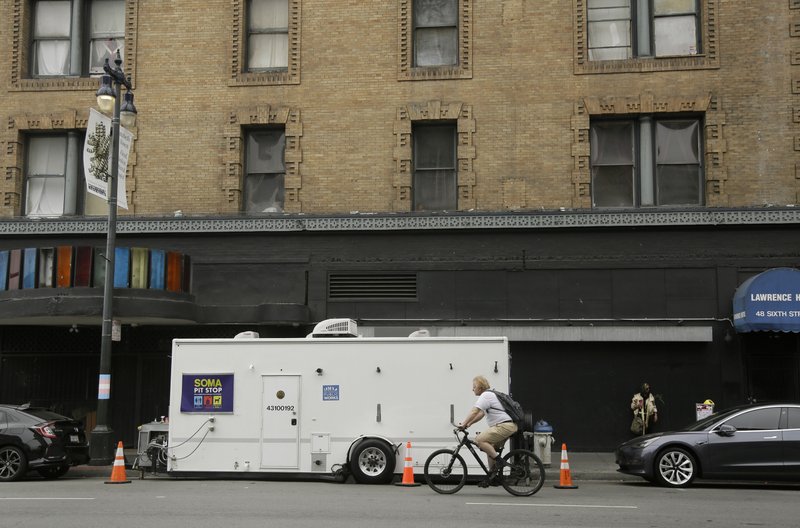SAN FRANCISCO -- The sidewalks surrounding Ahmed Al Barak's corner market in one of San Francisco's roughest neighborhoods are filled with cardboard, used syringes and homeless people who have nowhere safe to go at night.
But Al Barak says it's an improvement from a year ago, before the city posted a portable toilet across the street from his business in the city's Tenderloin district.
He no longer regularly sees people relieve themselves in broad daylight, and he does not see as much feces and urine on the streets.
"We used to have a disaster here. I used to call the city all the time to come and clean, because they don't know where to go," he said.
San Francisco started its "Pit Stop" program in July 2014 with public toilets in the city's homeless-heavy Tenderloin area, after children complained of dodging human waste on their way to school. Today, the staffed restrooms have grown from three to 25 locations, and the program has expanded to Los Angeles. In May, the toilets in San Francisco recorded nearly 50,000 flushes, all logged by attendants.
Mayor London Breed last year announced the formation of a special six-person "poop patrol" team where each cleaner earns more than $70,000 a year.
Advocates say steam-cleaning requests have dropped in areas surrounding some of the public toilets. The mayor signed a budget Thursday that includes more than $9 million for the Pit Stop toilets this year, up from $5 million last fiscal year. San Francisco will add seven new restrooms in a city where a one-night count of homeless people grew 17% in the past two years.
The toilets each cost an average of $200,000 a year to operate, with most of the money going to staffing and overhead.
Some of the restrooms are permanent fixtures, while others are portables with two toilets that are trucked in and out. The stops have receptacles for used syringes and dog waste.
Attendants who are paid the city's minimum wage of $16 an hour check after every use and knock on doors to make sure people are not doing drugs or other illicit activity. The staffing is what makes a toilet a Pit Stop, and the work is usually done by men emerging from prison after decades behind bars.
A Section on 08/04/2019
